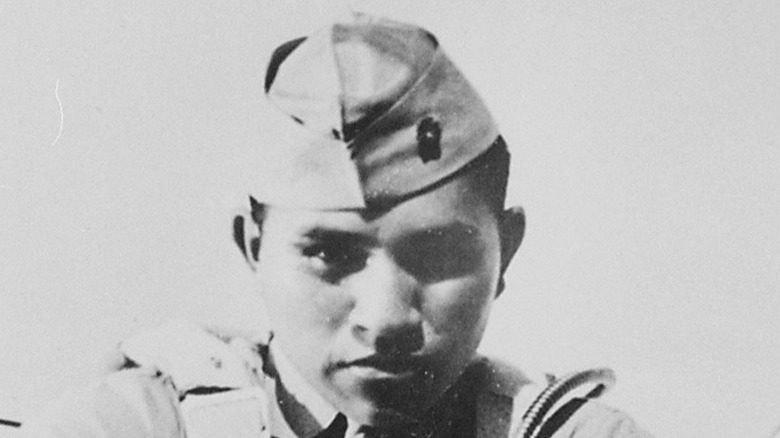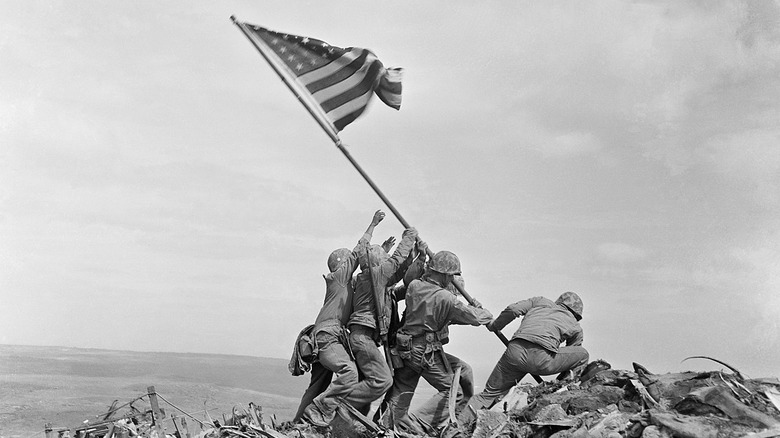The Tragic Death Of WWII Corporal Ira Hayes
The raising of the American flag on Iwo Jima on February 23, 1945, as depicted in the famous photograph by Joe Rosenthal, was not the first to take place on the island. The first flag raising actually happened earlier in the day once Mount Suribachi — one of the main Japanese strongholds on the island and where both flags were placed — had been officially declared secure. The second flag raising, however, unquestionably became the more famous event — one of the most iconic of World War II — and many monuments, paintings, and other works of art have been inspired by it.
As for the six soldiers in the photo itself, three were killed by the time the battle of Iwo Jima was finally over. Private First Class Ira Hayes was among the other three to survive, and all were treated as heroes in the immediate aftermath of the battle. Hayes, however, had trouble adapting to living in a post-war world and eventually succumbed to alcoholism that likely resulted in his premature death (via TheFamousPeople).
Surviving the war did not relieve Hayes of its psychological scars
Life had not been easy for Ira Hayes. As a member of the Native American Pima tribe, he and his people did not get the right to vote until 1948, and Hayes himself had been working as a carpenter until the attack on Pearl Harbor. Despite the institutional discrimination he faced, Hayes enlisted to become a paratrooper, a role which at the time was still in its developing stages in the United States. After years of fighting in the Pacific, his raising of the flag in 1945 almost immediately earned him massive praise (via All That's Interesting).
Despite his heroics, the guilt of surviving where so many of his comrades had fallen (only a fraction of the men in his company survived) plagued him for the remainder of his life. Rosenthal's iconic photo only further reminded him of that fact, and he soon turned to alcohol to cope. In 1955 Hayes was found dead outside on a cold Arizona night, presumably having lost consciousness after drinking. Hayes' brothers suggested that his death might have been caused by another member of the Pima tribe, but nothing ever came of this allegation. He was buried in Arlington cemetery (via World War II Database).

